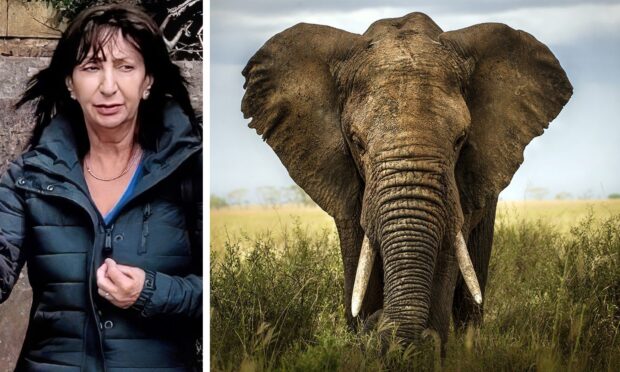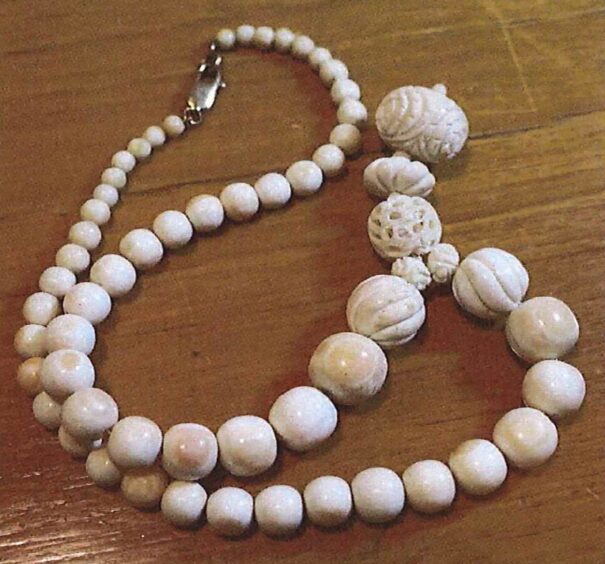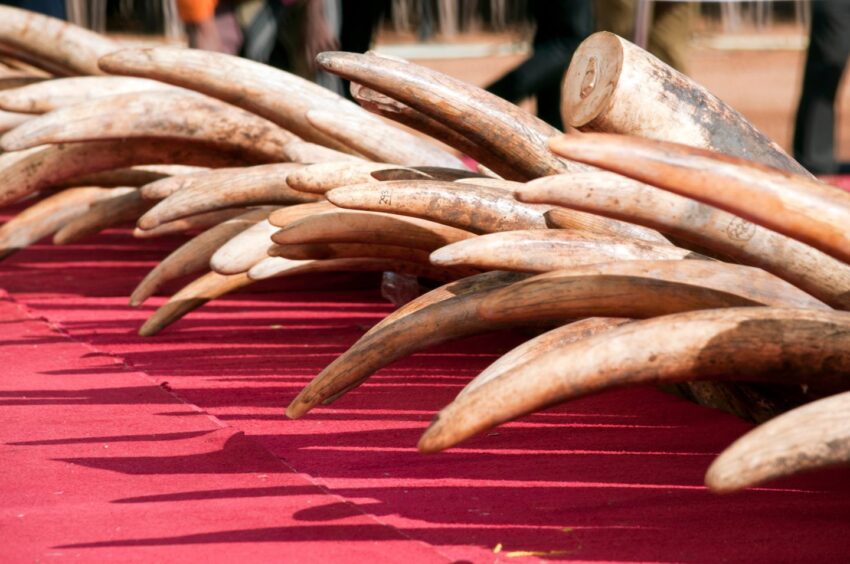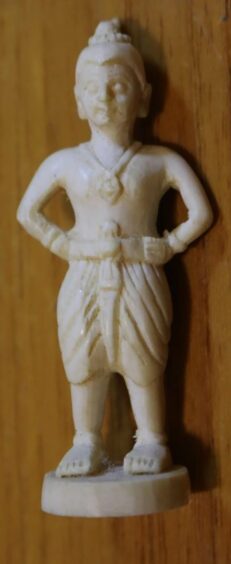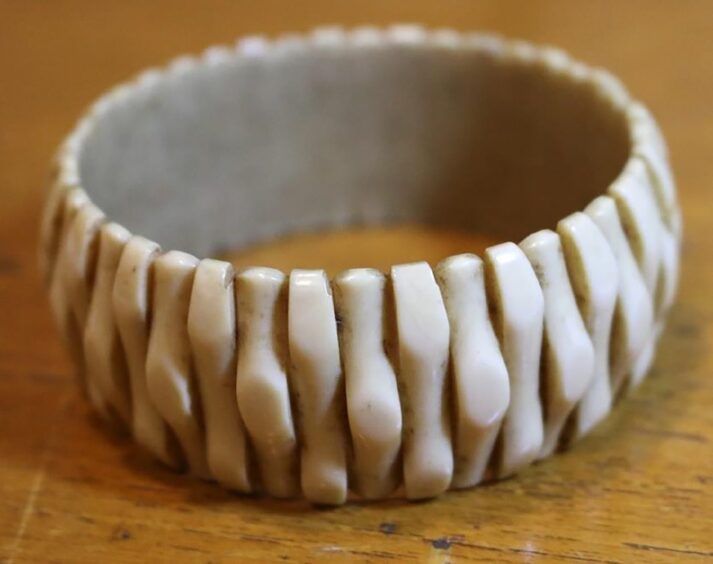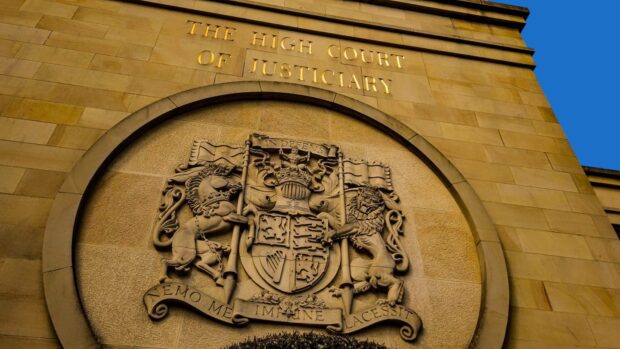A woman who raked in thousands of pounds in the international sale of elephant ivory from her home in Dundee has been fined £1,400.
Joyce Bell used eBay to flog necklaces to customers as far away as China.
The 67-year-old claimed the items were “bovine bone” but a specialist at the National Museum of Scotland confirmed they were made of ivory.
Bell was caught after Border Force agents intercepted parcels sent from eBay, which bans the sale of ivory.
She previously pled guilty at Dundee Sheriff Court to evading export duty costs and dealing in ivory between 2016 and 2022.
Her conviction is believed to be the first of its kind in Scotland.
‘Horrible’ poaching
The court was told how Bell made more than £6,400 by selling what was described as costume jewellery from elephant tusks.
Dozens of items were shipped but a number of packages were flagged by Border Force as potentially containing ivory.
Sheriff George Way said: “At the end of the day, the trade in these items is generated by money.
“If they weren’t valuable to some people then there would not be the illegal trade and there would not be the poaching and horrible things we know about.
“The money has to be a sum that reflects the trade and financial position of Ms Bell.”
Sheriff Way apologised for a faux pas after stating the accused had “made no bones about this matter”.
He added: “That is not a pun. I apologise.”
Nearly £6,500 sales
Fiscal depute Karen Rollo said Bell was issued with notices telling her she required permits to export the goods.
She claimed she did not know how to inform the relevant authorities.
Bell, of Denhead Crescent, had marked parcels as being worth low double figures but the eBay transactions were actually significantly higher.
Ms Rollo said: “The total value of sales is £6,412.12.
“It’s not possible to work out what she has evaded in export payments because we (the Crown) don’t know if they were grouped together. Each permit costs £37.
“Police obtained a warrant to search the accused’s home address and found a number of items which seem to have assisted her in carrying out the sales.
“The accused was interviewed and said the items were bovine bone.
“This seems to be a way around it as the items appeared similar.”
Hobby claim
Bell said she collected the material and had so much of it in her home that she decided to sell it as a hobby.
“She said she didn’t think the items were ivory,” Ms Rollo added.
“She described herself as a collector rather than a dealer.
“She reiterated she thought all the items were bovine bone and denied knowledge in relation to the offences.”
Ms Rollo said collectors would have been aware of the items being ivory due to it being heavier than bovine bone.
Bell pled guilty to an offence under the Ivory Act 2018 which prohibits people from dealing in ivory or assists someone else in doing so.
Her £1,400 fine was reduced from £2,000.
Conviction welcomed
Iain Batho, who leads for the Crown Office and Procurator Fiscal Service’s Wildlife and Economic Crime Unit (WECU), said: “A common misunderstanding is that items containing ivory crafted before 1947 can be sold legally, but this is not the case.
“The exemption for items pre-dating 1947 only applies if the item is made up of less than 10% ivory, the ivory is integral to the item and if it has been lawfully registered.
“Any member of the public dealing in items which may contain ivory are strongly encouraged to familiarise themselves with the terms of the Ivory Act 2018.
“In this case, whilst the actions of Joyce Bell may seem remote from the suffering of elephants in the wild, the two are directly linked.
“Without an illegal ivory market driving demand for such items there would be no need for the ongoing harm being caused to wild elephants.
“COPFS takes offences committed under the Ivory Act seriously and action will be taken against those who choose to engage in such conduct, where there is sufficient evidence of a crime and where it is in the overall public interest to do so.
“The result in this case is a testament to the collaborative working between COPFS, Police Scotland, the UK National Wildlife Crime Unit (NWCU) and the UK Border Force Agency.”
For more local court content visit our page or join us on Facebook.
